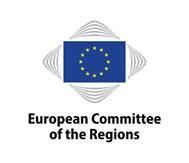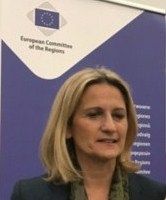
Encouraging entrepreneurship and identifying policy responses to tackle the challenges faced by entrepreneurs on islands was the objective of a seminar organised by the commission for economic policy (ECON) of the European Committee of the Regions (CoR) on 21 April in Malta. Politicians from different levels of government, entrepreneurs as well as representatives of business organisations and EU institutions discussed recommendations on regional, national and EU level.
Insular areas have to tackle a number of specific economic challenges connected to their geographical characteristics. Low population density, high transport costs, small size and fragmentation of markets depending on a few economic sectors and niches as well as the dominance of smalls firms make these economies even more dependent on entrepreneurial initiatives than other regions.
"Cities and regions are the catalysers and enablers for entrepreneurship and start-ups - to co-create the European mentality for new jobs and sustainable growth. As policy-makers we must create favourable conditions for entrepreneurs and start-ups with place-based and tailored strategies that focus on exploiting their comparative advantages in promoting a more efficient use of their existing natural, cultural and geostrategic assets", said CoR president Markku Markkula.
"Islands tend to develop different approaches in order to be in a position to keep up with the social and economic development of other regions in mainland Europe. Whilst a one size fits all approach may be counterproductive, islands' potential could be better exploited through measures aimed at alleviating the constraints of insularity such as improved trade and digital connections as well as aid to foster entrepreneurship and economic development", said Christian Cardona, Maltese Minister for Economy, Investment and Small Business.
About 17.7 million Europeans live on the EU's 362 lowly populated islands with a GDP that is less than 80% of the EU's average. However, most challenges for SME and entrepreneurship development can be tackled by adequate public support policies. Cohesion policy is essential argued Marie-Antoinette Maupertuis, member of Corsica's regional authority and rapporteur of the draft opinion on entrepreneurship on islands. 
"Entrepreneurs in island regions and island citizens in general have to cope with structural constraints, which lead to additional costs that severely impact on the islands growth and development prospects as well as on their fair integration in the single market. We demand that in cohesion policy post 2020 special attention is given to islands in order to compensate for the economic effects of natural constraints and that the complete territorial integration of island populations in single market is ensured so that they are given the same opportunities in production, innovation and trade as those living in the main land", said Ms Maupertuis.
She further called on EU institutions and Member States to extend business incentives, to ease public procurement and state-aid rules (particularly for transport and energy), and to give more concerted financial, technical and policy support to help entrepreneurs diversify the "economic monocultures" that dominate many islands as well as to promote features of the 'sharing', 'circular' and 'knowledge' economies.
The draft opinion, which will also take the conclusions of the seminar into account, is scheduled for adoption during the CoR plenary session on 11 May. The CoR study on "Entrepreneurship on islands and other peripheral regions" which was presented during the event will be available on the CoR webpage end of May.
Contact:
Carmen Schmidle
Tel. +32 (0)2 282 2366
carmen.schmidle@cor.europa.eu
The European Committee of the Regions
The European Committee of the Regions is the EU's assembly of regional and local representatives from all 28 Member States. Created in 1994 following the signing of the Maastricht Treaty, its mission is to involve regional and local authorities in the EU's decision-making process and to inform them about EU policies. The European Parliament, the Council and the European Commission consult the Committee in policy areas affecting regions and cities. To sit on the European Committee of the Regions, all of its 350 members and 350 alternates must either hold an electoral mandate or be politically accountable to an elected assembly in their home regions and cities. Click here for more details on your national delegation.